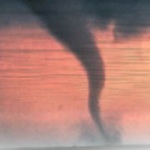Information
-
Audit Title
-
Conducted on
-
Prepared by
-
Location
-
Personnel
Hurricane Preperation
-
Plan your evacuation route. Contact the local emergency management office or other disaster preparedness organization, and ask for the community hurricane preparedness plan. This plan should include information on the safest evacuation route and nearby shelters. This information may also be obtained by visiting local Hurricane Preparation web pages.
Disaster supplies on hand in the event of a storm, or if you have to evacuate:
-
Flashlight and extra batteries
-
Portable, battery-operated radio and extra batteries
-
First aid kit and first aid manual.
-
Food (non-perishable) and water (one gallon of water per person per day)
-
Non-electric can opener
-
Essential medicines
-
Baby Supplies
-
Diapers
-
Non-perishable milk
-
Baby food
If you are ordered to evacuate, you should also take:
-
Toilet Paper
-
Toothbrush
-
Towel
-
Tampons
-
Soap
-
Books, small games and other small entertainment items
-
Important papers and valuables in a waterproof container
-
Names and addresses of relatives, friends and other important contacts
-
Clothing and bedding
-
Cash and credit cards
-
Sturdy shoes
Pet Care Consideration:
-
Are pets allowed into emergency shelters.
-
Have contacted local humane society for information on animal shelters if answer above is "No".
Boat plans if applicable:
-
Transport it out of the path of danger.
-
Securing on a trailer and leaving in a safe parked area.
-
Securing it in a marina or mooring it in a "safe" harbor
-
Leave the Keys with your boat, make sure to leave early because after the advent of storm force winds, trailers will no longer be allowed on the highway.
Protect valuable documents and property, including:
-
Birth certificates
-
Marriage certificates
-
Social security cards
-
Passports
-
Immunization records
-
Bank account and credit card numbers
-
Photos/video of your home and valuable property
-
Vehicle titles
-
Military service papers
-
Wills
-
Insurance policies, including personal, homeowners and disaster insurance
-
Deeds
-
Stocks
-
Bonds
-
Irreplaceable photos
-
Computer back up of important electronic data
-
Jewelry
Make sure that all family members know how to respond after a hurricane. Teach family members how and when to turn off
-
Gas
-
Electricity
-
Water
Children have been tought how and when to call 911, police, or fire department and what radio station to listen to.
-
Call 911
-
Police
-
Fire Department
-
Radio station to listen to
Window Protection
-
Permanent shutters are the best protection. A lower-cost approach is to put up plywood panels. Use 1/2 inch plywood--marine plywood is best -- cut to fit each window. Remember to mark which board fits which window. Pre-drill holes every 18 inches for screws. Do this long before the storm.
-
Windows Secured.
Tree and Bush Care
-
Trim back dead or weak branches from trees and brush or any that may become airborne and pose a safety risk.
-
If applicable, trim coconuts from palms. (Can become missiles during storm.)
Insurance policies.
-
If you do not already have flood and windstorm insurance, you should consider getting it. Remember: Windstorm insurance policies are not sold when a storm threatens, so think far enough ahead. You can find out about the National Flood Insurance Program through your local insurance agent or emergency management office. There is normally a 30-day waiting period before a new policy becomes effective. Homeowners polices do not cover damage from the flooding that accompanies a hurricane.
Emergency Communication Plan
-
In case family members are separated from one another during a disaster (a real possibility during the day when adults are at work and children are at school) Have a plan for getting back together.
-
Out-of-State relative or friend to serve as the family contact?
-
Everyone in family knows the above contact information. Name, Address and Phone.
Pictures of your house and property.
-
Photos and / or video of your house, it's contents and the surrounding property.
-
This will make it easier to prove loss to your insurance company following landfall.
Hurricane Watches and Warnings
-
A hurricane watch is issued when there is a threat of hurricane conditions within 36 hours. A hurricane warning is issued when hurricane conditions (winds of 74 miles per hour or greater, or dangerously high water and rough seas) are expected in 24 hours or less.
-
Listen to local radio or television stations for hurricane progress reports and emergency orders.
Hurricane Watch
-
Check emergency supplies.
-
If you have not already done so, fuel your car.
-
If you have not already done so, stock up on water, non-perishable food, water and ice.
-
Bring in outdoor objects such as lawn furniture, toys, and garden tools and anchor objects that cannot be brought inside.
-
Secure buildings by closing shutters and/or boarding up windows. Remove outside antennas.
-
Turn refrigerator and freezer to coldest settings. Open only when absolutely necessary and close quickly.
-
Fill bathtubs, washing machines, sinks and other containers with clean water.
-
Reviewed evacuation plan.
-
Moor boat securely or move it to a designated safe place. Use rope or chain to secure boat to trailer. Use tie downs to anchor trailer to the ground or house.
Hurricane Warning
-
Listen to local radio and television stations constantly for official instructions.
-
If you are in a mobile home, check tie downs, then evacuate immediately to a safe location.
-
Store valuables and personal papers in a waterproof container on the highest level of your home, or take them with you if you evacuate.
-
Stay inside, away from windows, skylights, and glass doors. Keep your emergency supply of flashlights and extra batteries handy. Avoid using open flames, such as candles and kerosene lamps, as a source of light. If power is lost, turn off major appliances to reduce power "surge"when the electricity is restored.
-
Avoid elevators.
If officials indicate evacuation is necessary:
-
Secure your home by unplugging appliances and turning off electricity and the main water valve.
-
Tell someone outside of the storm area where you are going.
-
If time permits, and you live in an identified surge zone, elevate furniture to protect it from flooding or better yet, move it to a higher floor.
-
Gathered pre-assembled emergency supplies, warm protective clothing, blankets and sleeping bags. Review directions to the nearest shelter.
-
Leave as soon as possible. Avoid flooded roads and watch for washed-out bridges.
After the Hurricane passes
-
If you evacuated, return home only after authorities advise that it is safe to do so. If you evacuated, and your house has been vacant for a period of time, enter with caution.
-
Stay tuned to local radio and / or television for information. Emergency officials will announce when you may return to your home, or when it is safe to venture outside.
-
Help injured or trapped persons if you can do so without injury to yourself.
-
Give first aid where appropriate.
-
Do not move seriously injured persons unless they are in immediate danger of further injury. Call for help if possible, otherwise wait and help will come to you.
-
Beware of snakes, insects, and animals driven to higher ground by flood water.
-
Drive only if absolutely necessary and avoid flooded roads and washed-out bridges.
-
Use telephone only for emergency calls.
-
Avoid loose or dangling power lines and report them immediately if possible to the power company, police, or fire department.
-
Open windows and doors to ventilate and dry your home.
-
Check refrigerated foods for spoilage.
-
Take pictures of the damage, both to the house and its contents and for insurance claims.















